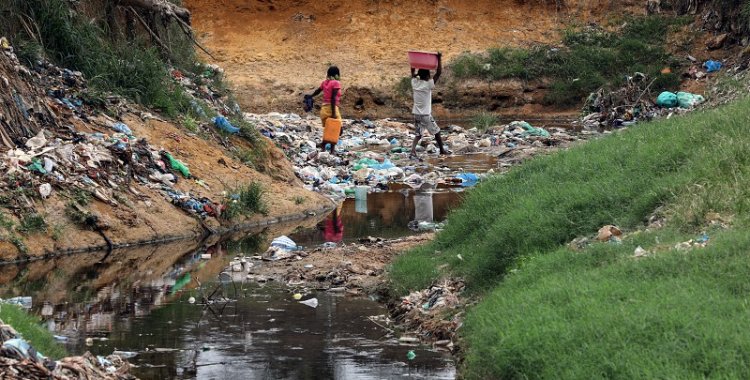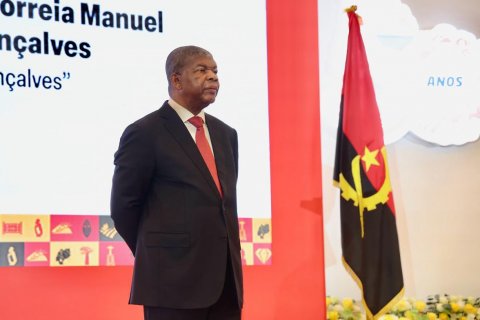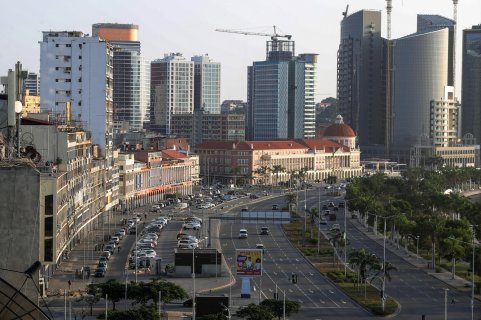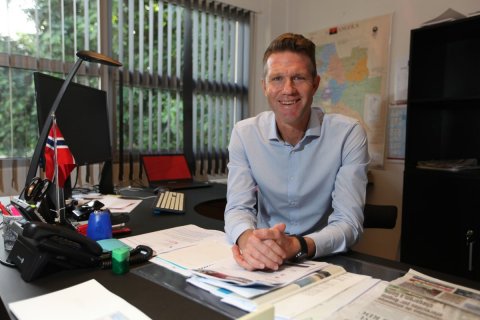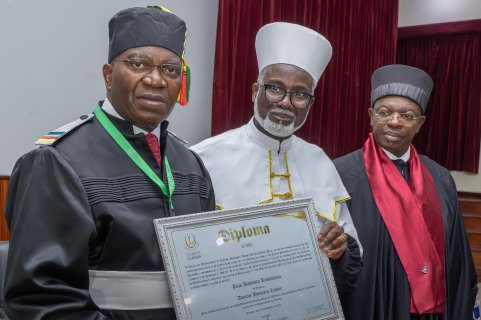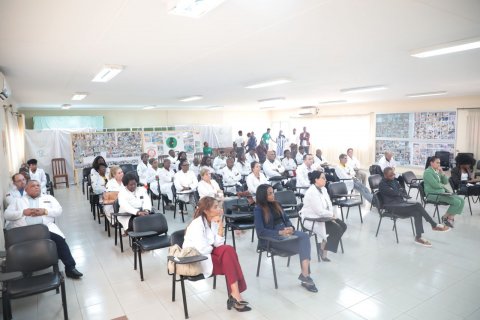At least five people were officially proclaimed victims of cholera, a disease linked to fecal contamination associated with the lack of sanitation and water treatment and bad hygiene, and the inhabitants are concerned, asking for the intervention of the authorities.
Crossing a huge ditch where debris and fetid waters are accumulated, a group of women are still profiled by the paradise bridge without letting themselves bear the weight of the liquid that carry their heads in huge sneakers.
Among these is Fernanda, who despite the half -hour walk to pick up water from the tank and evident tiredness agrees to speak to Lusa.
“With the cholera, we have to have a lot of water. We have to wash our hands, wash the food well, but since water is not enough, we don't do it. Even to bathe, (are) only two bottles of water we use and to wash our hands every day, ”he laments, adding that disinfects water with a lixive before use.
Women go through several kilometers every day to the tanks distributed throughout the neighborhood to get water for washes or to drink, in quantities that vary according to the needs and size of the family, but also the available income, as each bowl costs between 300 and 500 kwanzas, and in the country where the minimum salary surrounds the 70,000 kwanzas and families have on average seven elements.
To realize this essentially feminine task, "moms" have to leave home at 4:00 am, as Julia said, who often have to choose between leaving their kwanzas in the water tank or spending money on food for their children.
In the ditch, two children with carboys get wet in the filthy water. The older ones vent to problems, with common complaints about lack of water, illness, unemployment, abandonment. Ernesto Joaquim Vunge reinforces the lack of water, which is "dirty", and says that "it is bringing disease." “We are drinking very cloudy water,” he confides.
Another resident, José Mamona, is afraid that he was contaminated: “I have vomiting problems and stomach pain, I was at Hospital Grande [Cacuaco Municipal Hospital] and nothing is done, there is no medicine,” he says, while displaying a Mineral water bottle that assumes no money to get every day for being unemployed, such as most neighborhoods in the informal economy and Biscates.
Next to a tank, Teresa prepares to get water, a task that meets three or four times a day, complaining about spending 5000 kwanzas daily.
“Water here is a business,” is outraged Venâncio Samuel of the funeral agency that accompanies another family to the cemetery, pointing to an abnormal number of deaths. “Most funerals are doing in the Paraíso neighborhood, since last week we have done more than 15 funerals,” he says, denouncing that many cisterns operators fill the tanks with water collected directly on the Kifangondo River and provide it to the citizens, Without any treatment.
"It is an issue that is concerned with, people give symptoms of diarrhea and vomiting and when they arrive at the hospital they can no longer resist and die," he stressed, stressing that the paradise water is "yellow" and installing the authorities to accompany the authorities case.
“I would advise those who are entitled to inform the population how to treat water, I think paradise is a forgotten neighborhood (…) we are worried, life is sacred, even many lives that are leaving paradise,” entristece- If, along with another wake, these days when death has been around paradise.
António Garcia is the father of the man who died. He was 45 years old and died due to the disease, the parent told Lusa, telling that only two days between the onset of symptoms and the loss of the child, which began with vomiting after consuming water that supposes contaminated.
At the hospital where he was assisted, the doctors "said it was a problem of cholera" and gave treatment, but the son "could not stand," continues António Garcia, adding that in the house of the neighbors a child also died due to the disease.
"No one knew if (the tank water) was contaminated or not, so they drank, of course," he says.
The chairman of the residents' commission denies that there is an incuria of the authorities and ensures efforts to raise awareness with the population, although residents have declared to Lusa that they were not contacted by health technicians.
Miranda Dembo stressed that the commission has been working with the Provincial Health Directorate, religious entities and coordinators of the blocks to “go to the ground” to sensitize the population.
“We are concerned,” he admits, giving a new visit to the Secretary of State for Health, who attests to the authorities' concern and the demand for solutions, who go through the reinforcement of the schist trucks that travel the “with treated water” neighborhood for now.
Miranda Dembo stressed the positive evolution at the level of delinquency of this neighborhood with 152,000 inhabitants, which occupies a length of nine square kilometers, and highlighted that there is a project of conduct to provide water to the neighborhood inscribed in Piim (integrated intervention plan in municipalities ) which is "following the procedures".
Until then, cistern trucks are still necessary, "a palliative work that has been done by EPAL [water distribution manager in Luanda] that controls water quality." But the official assumes that control has flaws: "We cannot prove if the water is contaminated or not."

